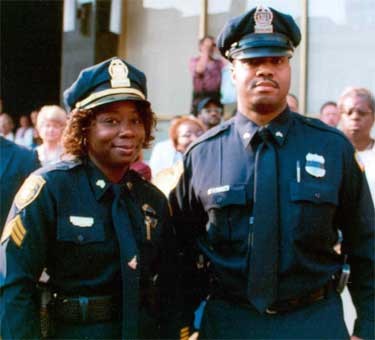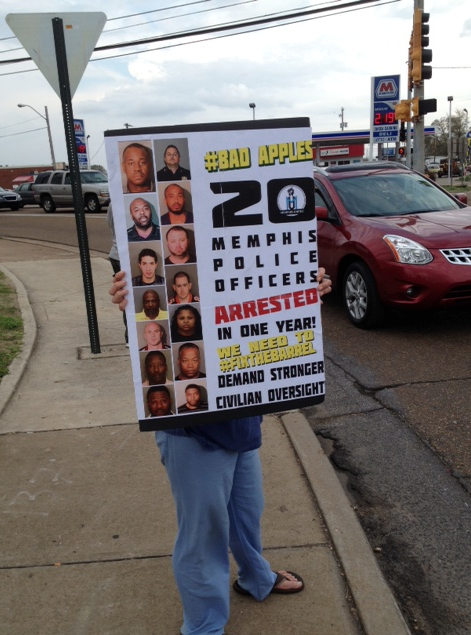 Louis Goggans
Louis Goggans
A woman holds a sign displaying several Memphis Police officers who have been arrested since 2014 at the intersection of Lamar and Airways.
Cars driving through the intersection of Lamar and Airways during rush hour Wednesday were greeted by protesters holding signs that read “#Bad Apples,” “Demand Oversight of the Police,” “We Don’t Need Seedy Police,” and “Protect Us, Don’t Kill Us.”
The protesters were participants of “Bad Apples? FixTheBarrel,” a rally for stronger civilian oversight of police. If passed, an amended version of the city’s Civilian Law Enforcement Review Board (CLERB) ordinance would help accomplish this goal.
The amended ordinance would provide CLERB with the power to subpoena documents and police witnesses, investigate complaints concurrently with Memphis Internal Affairs, and make disciplinary recommendations to the Memphis Police director, among other authoritative acts. It’s slated to be heard by City Council’s Personnel Committee next Tuesday at 8:30 a.m.
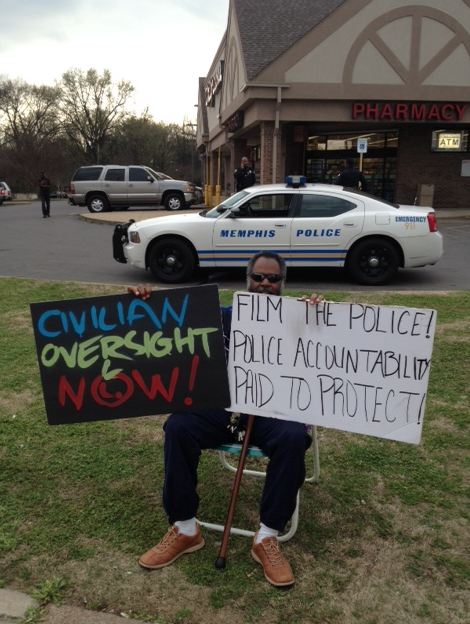 LG
LG
Memphis United, a coalition of local grassroots organizations and residents against structural and institutional racism, spearheaded the gathering Wednesday.The event’s theme was inspired by the 20 Memphis Police officers, referred to as “bad apples” by the protesters, who were reportedly arrested between March 2nd, 2014 and March 2nd, 2015.
Around a dozen protesters walked along the sidewalk in front of the Walgreens at 1489 Airways Blvd. while several others stood across the street under a Blue Crush SkyCop.
The diverse collective chanted, “What’s done in the dark will be brought to light! Memphis needs police oversight!” and “Up! Up! With accountability! Down! Down! With police brutality!”
A multitude of drivers honked their horns and lifted fist in support of the movement as they cruised by.
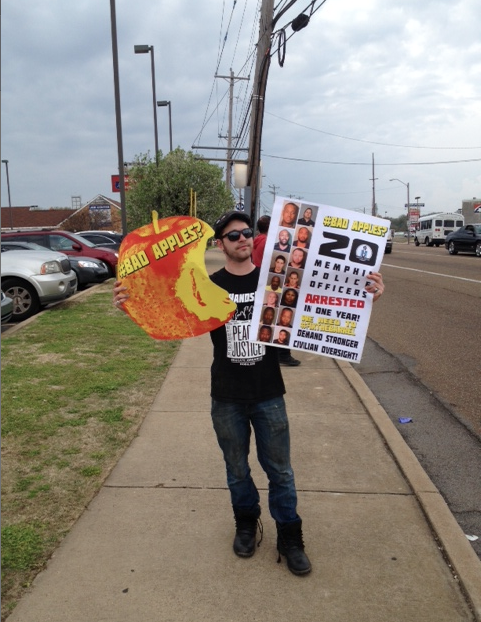 LG
LG
“If we’ve had 20 officers arrested in a year, that’s almost two a month,” said Paul Garner, organizing coordinator for the Mid-South Peace and Justice Center, during the protest. “I think that points to a systemic problem. Because there’s such an outcry from the community, we need to look at systemic solutions. That’s kind of where our whole ‘fix the barrel’ theme comes from. If we want to have good apples in our barrel, we need to look at ways to improve the way we hold law enforcement accountable. There needs to be a system in place where when people file complaints, it’s tracked and available to the public, so that we catch these things before something serious happens.”
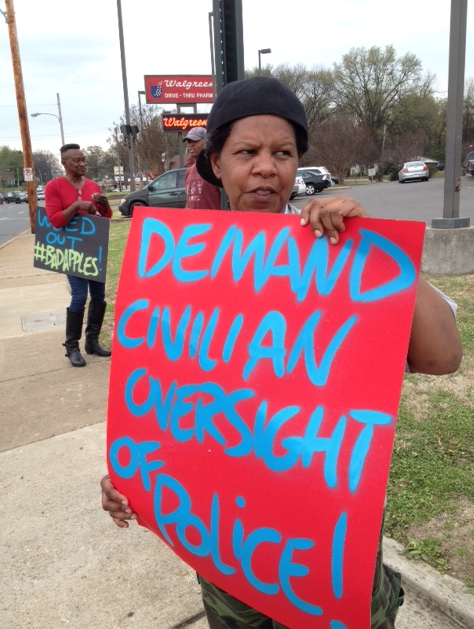
Read next week’s issue of the Flyer for more information on Memphis Police officer arrests and CLERB.
